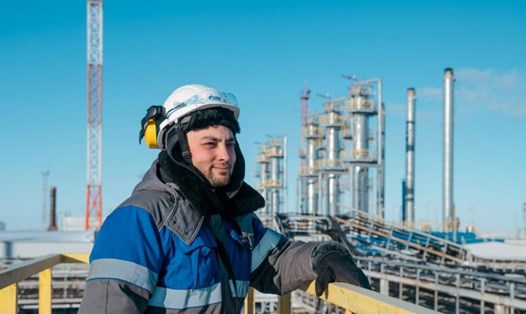Politico reported that Nina Scheer - energy spokeswoman for the Social Democratic Party of Germany (SPD), now a coalition partner in the new government - has publicly supported the possibility of lifting US sanctions on Nord Stream 2 AG, the operator of the Nord Stream 2 gas pipeline connecting Russia and Germany.
US sanctions have violated international law from the start, Scheer told Politico. It is reasonable to remove them if that opens up diplomatic opportunities to end the conflict.
Despite emphasizing that Germany remains steadfast in its transition to renewable energy, Scheer's speech is putting the German government at risk of differentiation, especially as the SPD is just a small coalition in the government led by the conservative faction of future Chancellor Friedrich Merz.
The above information appeared after US President Donald Trump sent special envoy Steve Witkoff to conduct many unofficial negotiations with Russia. Notably, Ukraine was left out of the negotiation table, while topics surrounding reducing tensions and restoring economic relations, including the resumption of Nord Stream 2, were discussed.
However, for many Europeans, this is a dangerous deal. We are deeply concerned that the Trump administration seems ready to betray Ukraine, ignore international law and give Russia an exemption, warned Michael Gahler, a spokesman for the European Peoples Partys foreign policy in the EU Parliament.
On the side of the Berlin government, the German Ministry for Economy and Climate Action immediately dismissed the possibility of restoring Nord Stream 2, regardless of the US's actions. This pipeline has never been certified for legality. Putting it into use is not in the government's calculations" - the spokesperson of this Ministry emphasized.
Since the outbreak of the Ukrainian conflict in 2022, Germany has made efforts to reduce its dependence on Russian gas, from more than 50% before the conflict to less than 10% in 2024.
The Nord Stream 2 gas pipeline, which had never been officially operated, was frozen indefinitely right before the war broke out.
However, as Europe struggles with high energy prices and unstable gas supplies from the Middle East, geopolitical calculations may once again put energy benefits on the scale.










